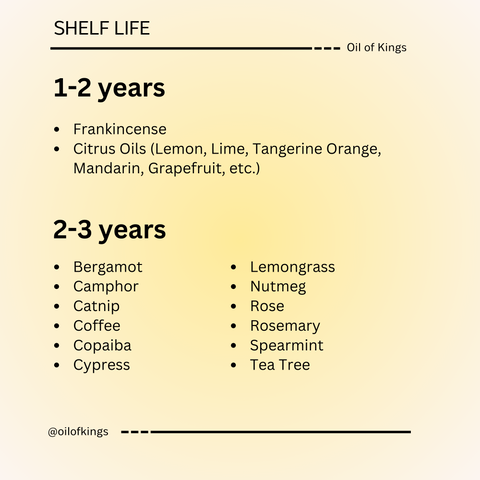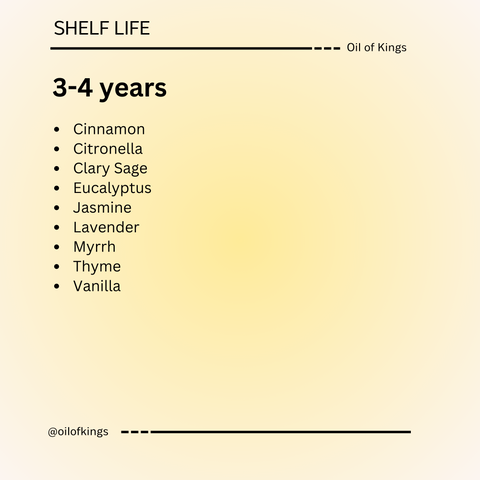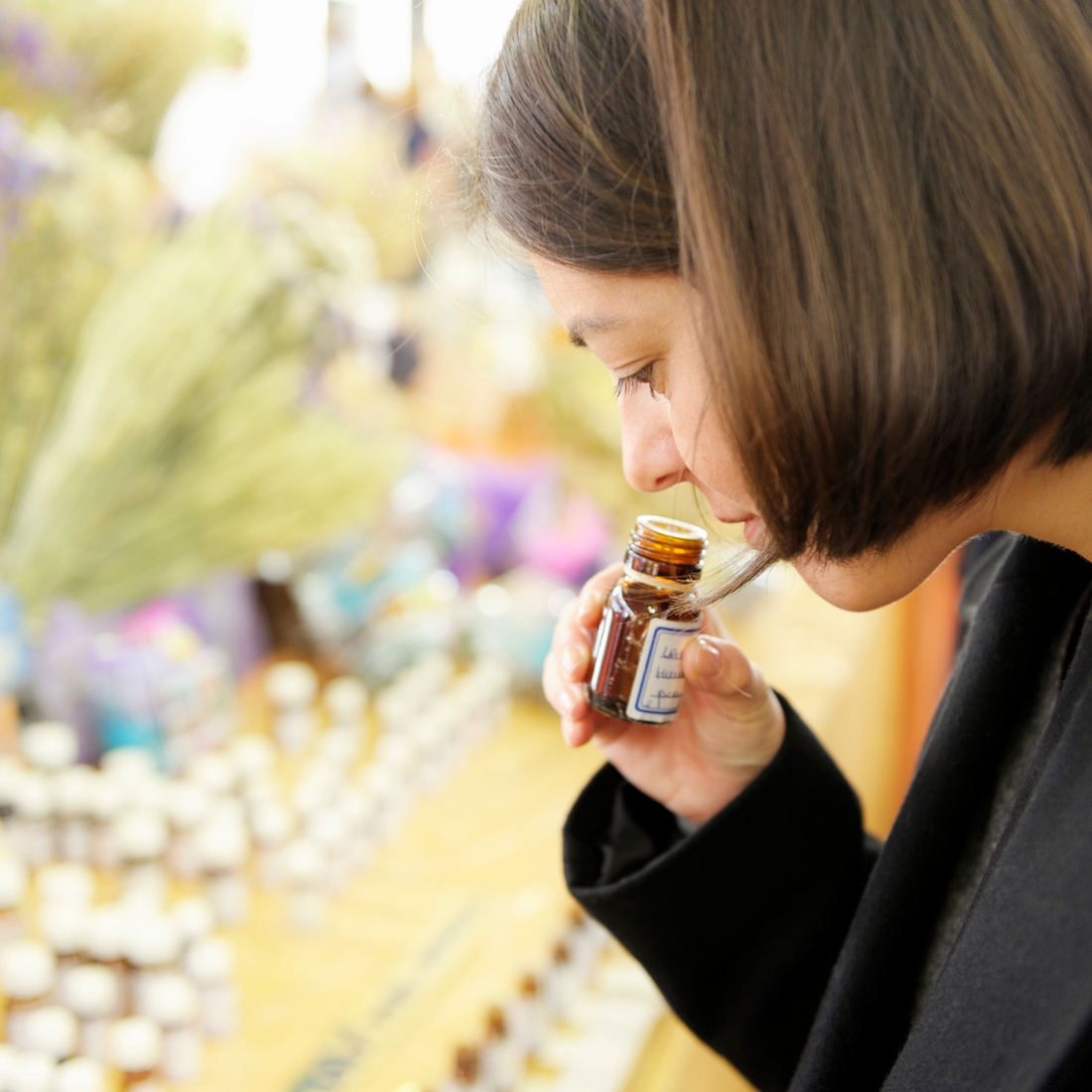Essential oils have become popular for their numerous benefits and uses, but like any natural product, they have a limited shelf life. Understanding when essential oils expire is crucial for ensuring their effectiveness and safety.
Let’s explore the signs of expiration, methods to extend their shelf life, and creative ways to responsibly reuse or dispose of expired oils.
Approximate shelf life of popular essential oils
The expiration of essential oils varies depending on the specific oil. Here is a general guide to the shelf life of popular essential oils:


It's important to note that these are approximate ranges, and factors like storage conditions and quality can affect the lifespan of essential oils.
Why Do Essential Oils Expire?
Essential oils expire due to various factors. The main culprits are exposure to air, light, heat, and moisture, which can lead to oxidation and degradation of the oil's chemical components. Over time, this deterioration results in a loss of aroma, potency, and therapeutic properties, rendering the oil less effective.
How Can You Tell if Your Essential Oil is Expired?
Determining if an essential oil has expired is essential for ensuring safe usage. Here are some signs that indicate an oil may have expired:
- Change in Aroma: If the oil's scent becomes significantly altered or weakened, it may have expired.
- Thickening or Cloudiness: Expired oils can become thicker or develop a cloudy appearance due to chemical breakdown.
- Sediments or Particles: The presence of sediments or floating particles is a clear sign of an expired oil.
- Loss of Therapeutic Benefits: If you no longer experience the expected benefits from using the oil, it might have expired.
How to Extend Shelf Life?
- Proper Storage: Store essential oils in dark glass bottles, away from direct sunlight and heat.
- Avoid Air Exposure: Keep the bottle tightly sealed when not in use to prevent oxidation.
- Store in Cool Environment: Essential oils are sensitive to heat, so store them in a cool area, away from fluctuating temperatures.
- Use Amber or Cobalt Glass Bottles: These colored glass bottles offer additional protection from light exposure.
- Avoid Contamination: Use clean droppers or pipettes to extract the oil, and avoid touching the inside of the bottle or dropper with your fingers.
Best Way to Reuse or Dispose of Expired Essential Oils
- Natural Cleaning Solutions: Create homemade cleaning products by combining expired essential oils with vinegar, baking soda, or castile soap.
- DIY Beauty Products: Incorporate expired oils into homemade soaps, lotions, or bath salts for a fragrant touch.
- Air freshener: Mix expired oils with dried flowers, herbs, or potpourri to create scented sachets or room fresheners.
- Consult Local Recycling Facilities: Check if your local recycling center accepts essential oils for disposal or provides guidance on safe disposal methods.

